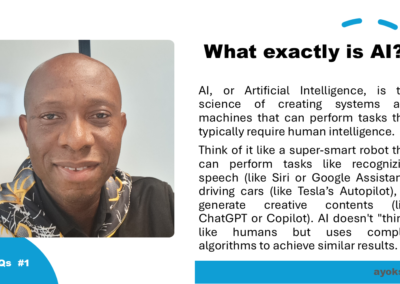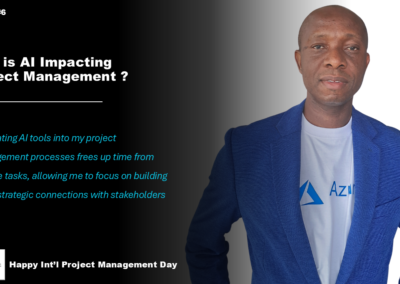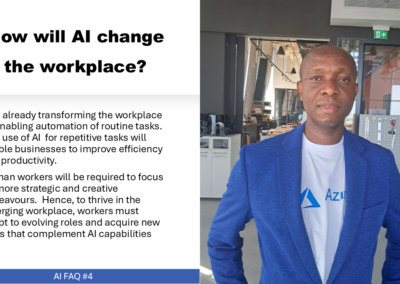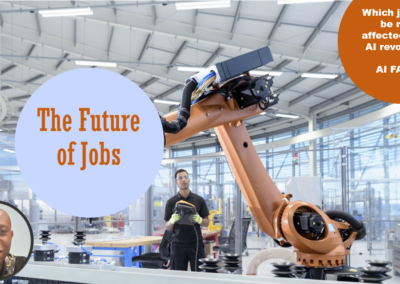Africa ignite is a community where business and technology professionals co-learn to enable them leverage AI and other digital technologies to advance African businesses
AI obviously is a game changer. The tech space is rapidly evolving, hence there is need for continuously learning to adequately take advantage of digital technologies like Artificial intelligence and machine learning.
– JC





